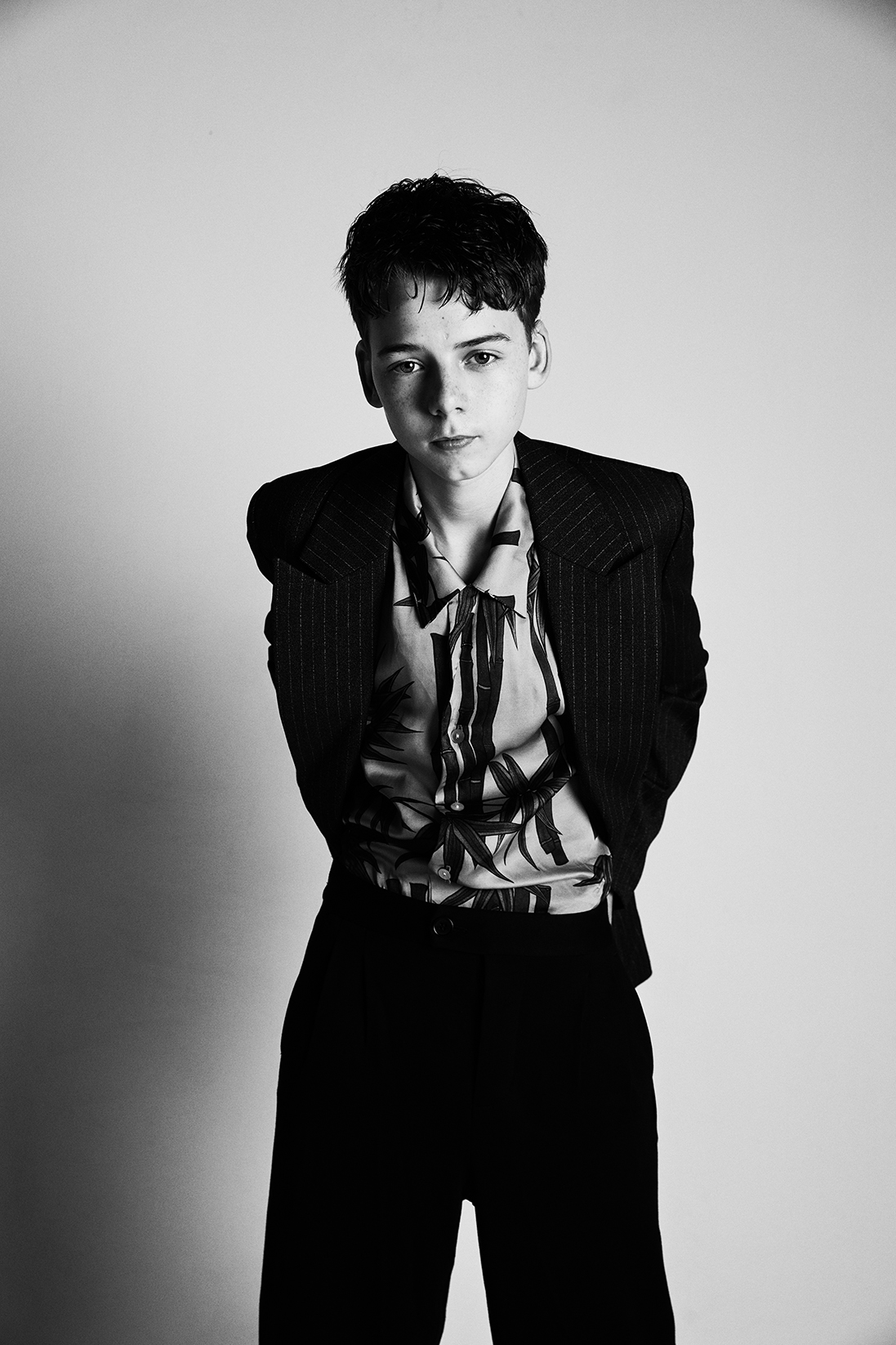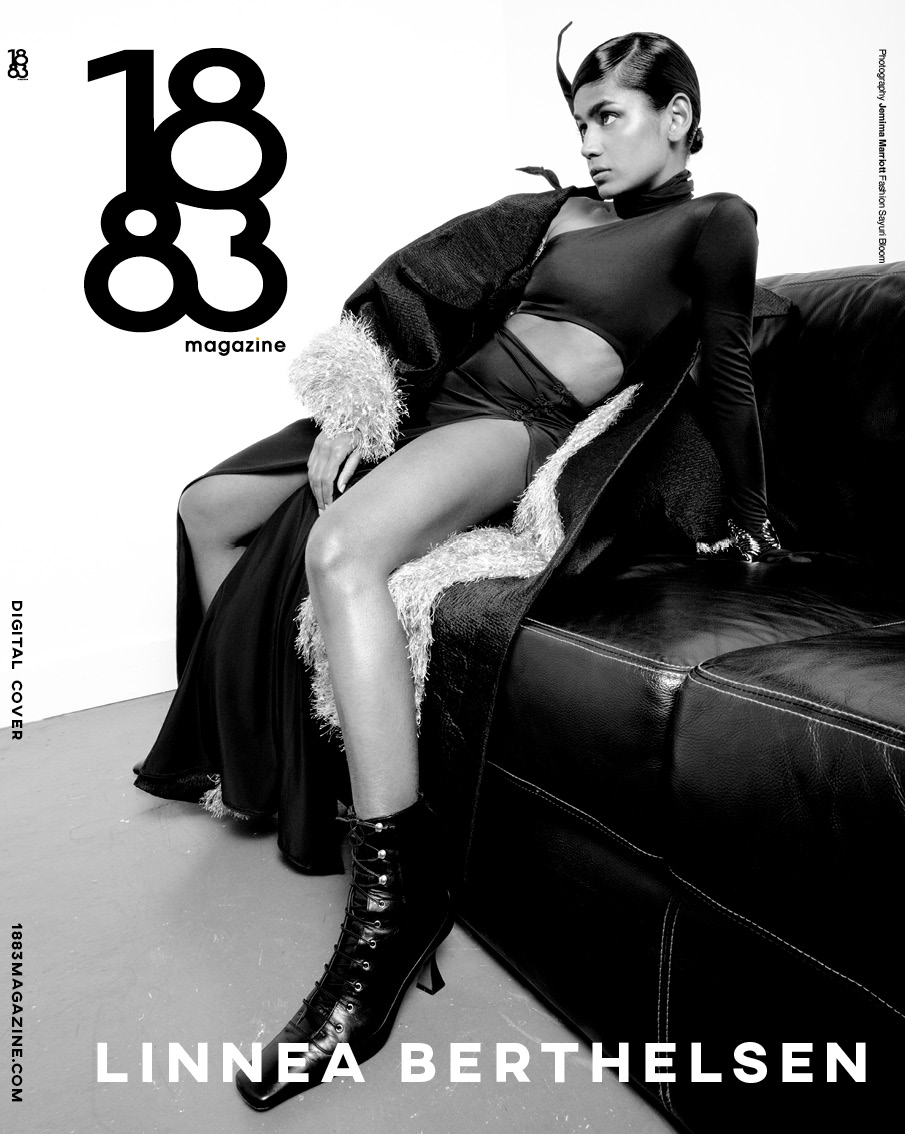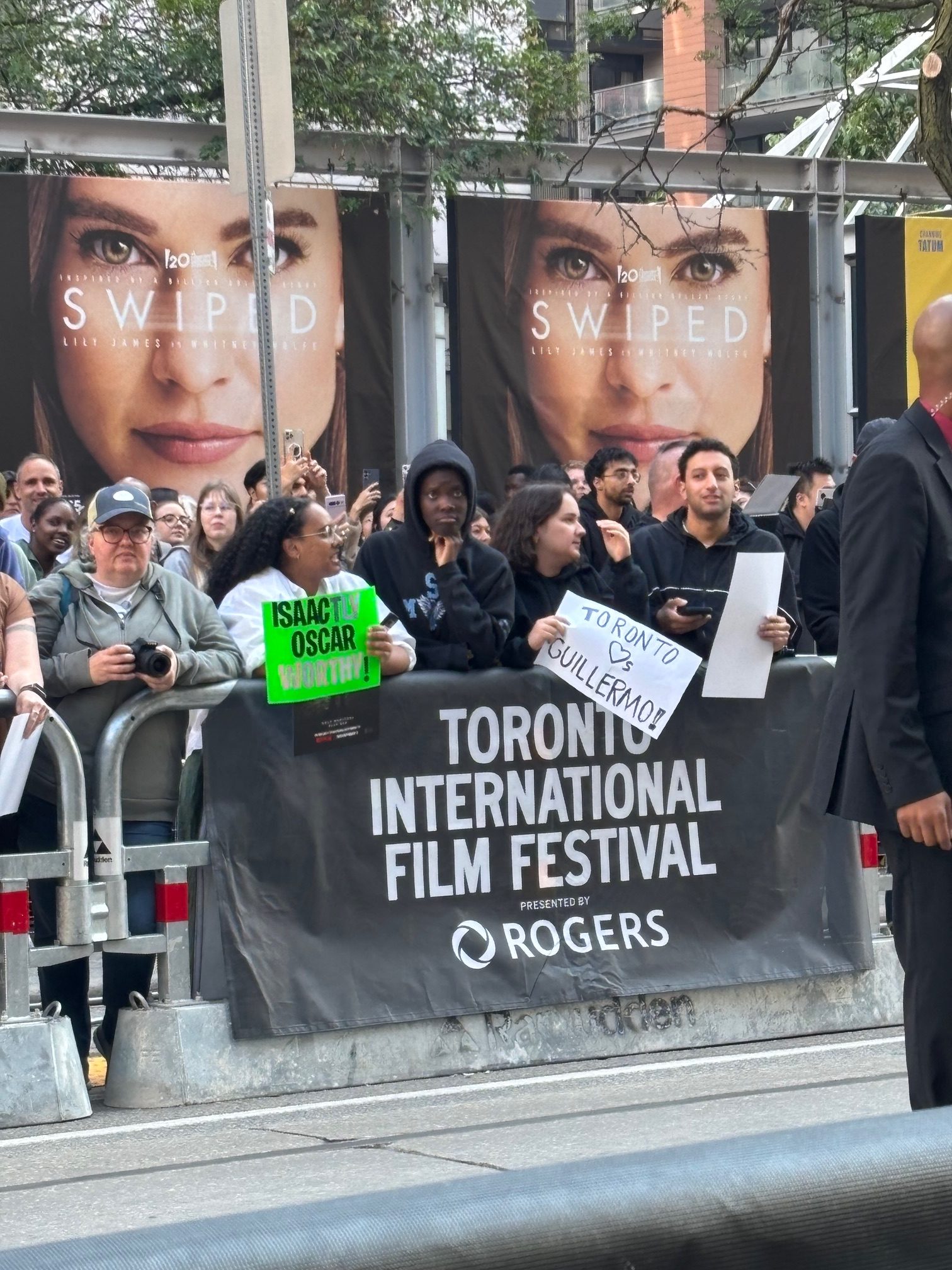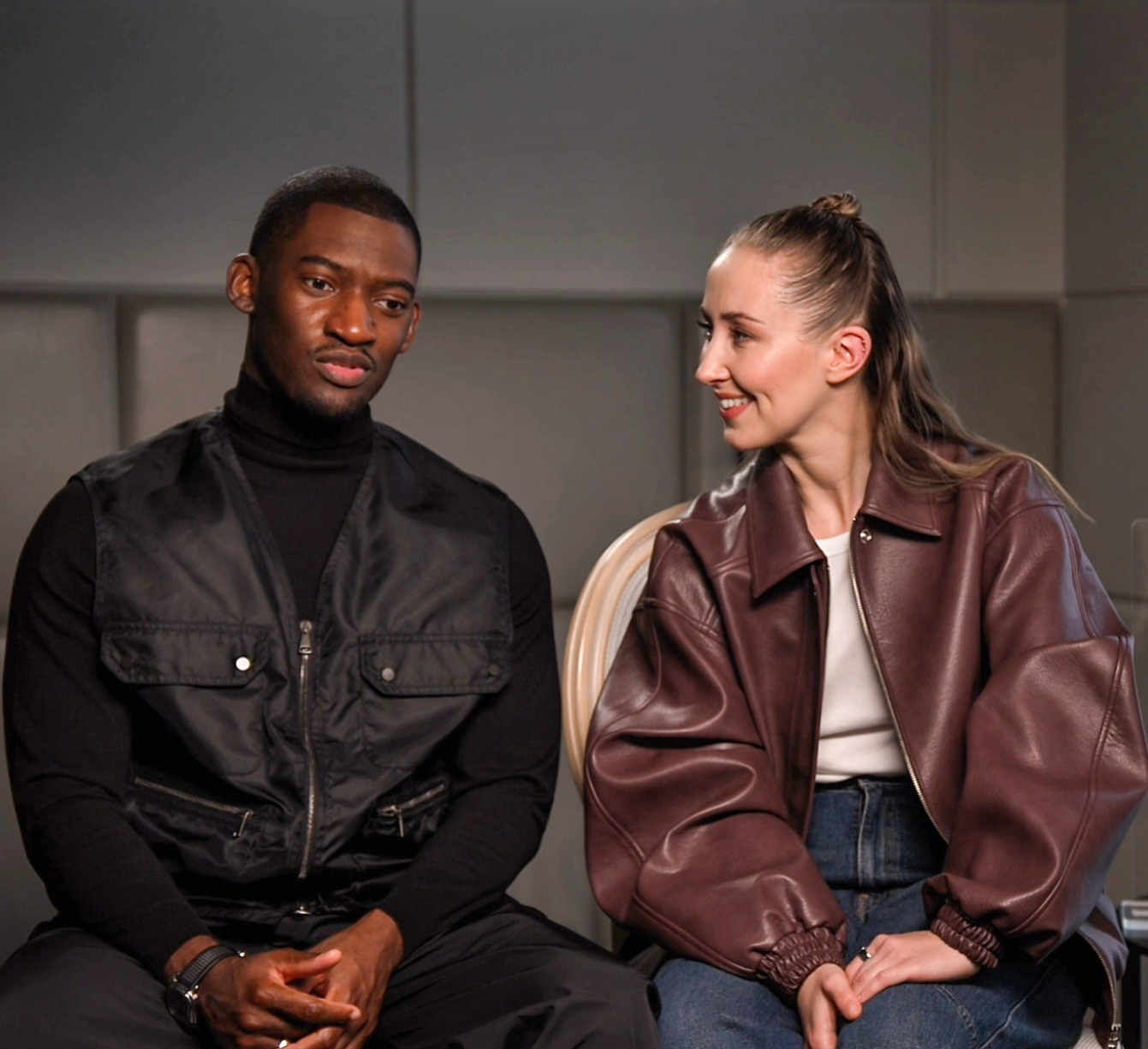Ben Hardy is feeling a little tender for two very different reasons. The first is that he spent the following evening before our interview watching — and subsequently celebrating — England play the Netherlands in the 2024 Euros. “I didn’t even drink,” he laughs when recalling the night. The second reason is that he is about to wrap up press for his new film Unicorns, a project that has meant the world to him and helped show a new side to the actor everyone thinks they already know.
It has become a very hot day in South London when Hardy wraps his shoot and sits down to discuss filming Unicorns. We’re sat at a picnic bench underneath the blistering afternoon sun, something Hardy encourages. When I mention that we can move in the shade if it’s too hot, but it is meant to rain tomorrow, he simply says: “This is why we have to take it while it lasts.”
It’s that mindset that has been the foundation of Hardy’s deft selection of films and TV roles to date. Taking it while it lasts, to him, means to push himself into new territories and roles, trying on different characters that on the surface seem very different to who he is. When you Google his name, Hardy is usually associated with the same three things: EastEnders, X-Men: Apocalypse, and Bohemian Rhapsody. Although it’s obvious why Hardly aims to ensure that every role he plays is different than the next, it’s the unassuming yet larger-than-life Unicorns that shows Hardy pushing himself in ways he hasn’t ever done before.
Co-directed by Sally El Hosaini, renowned for her acclaimed film The Swimmers, and the multifaceted James Krishna Floyd, Unicorns oscillates between the exhilarating thrill of raw passion, the weight of familial duty, and the profound transformation of being truly seen. I first caught it last fall after it premiered as a Special Presentation at the Toronto International Film Festival and somehow the film found a way to embed itself into my mind for months to come.
In Unicorns, Hardy shows a different side to himself as an actor. He portrays Luke, a diligent single father, who has resigned himself to transient encounters in the scant moments he can steal from his hectic life. After stumbling into an underground nightclub one evening, his life changes. Enter Aysha, played by the ravishing newcomer Jason Patel, who immediately becomes entranced by Luke and vice versa. Their initial kiss ignites a spark, only for Luke to be jolted by the revelation that Aysha is not the cisgender woman he presumed, but a strikingly feminine drag queen. Overwhelmed by this unexpected twist, Luke retreats.
Yet, sensing an undeniable connection that transcends mere physical attraction, Aysha seeks out Luke, extending an offer for him to drive her to various performance venues. In need of additional income, Luke cautiously accepts, thereby entering London’s vibrant underground “gaysian” scene. As they spend more time together and confront the complexities of their personal lives that extend beyond conventional notions of gender and intimacy, they grapple with the possibility of a love that defies traditional boundaries.
In conversation with 1883’s Editor Kelsey Barnes, Ben Hardy discusses filming Unicorns, fleshing out the many facets of his character Luke, how exploring the film’s themes of identity has shaped his own, and more.
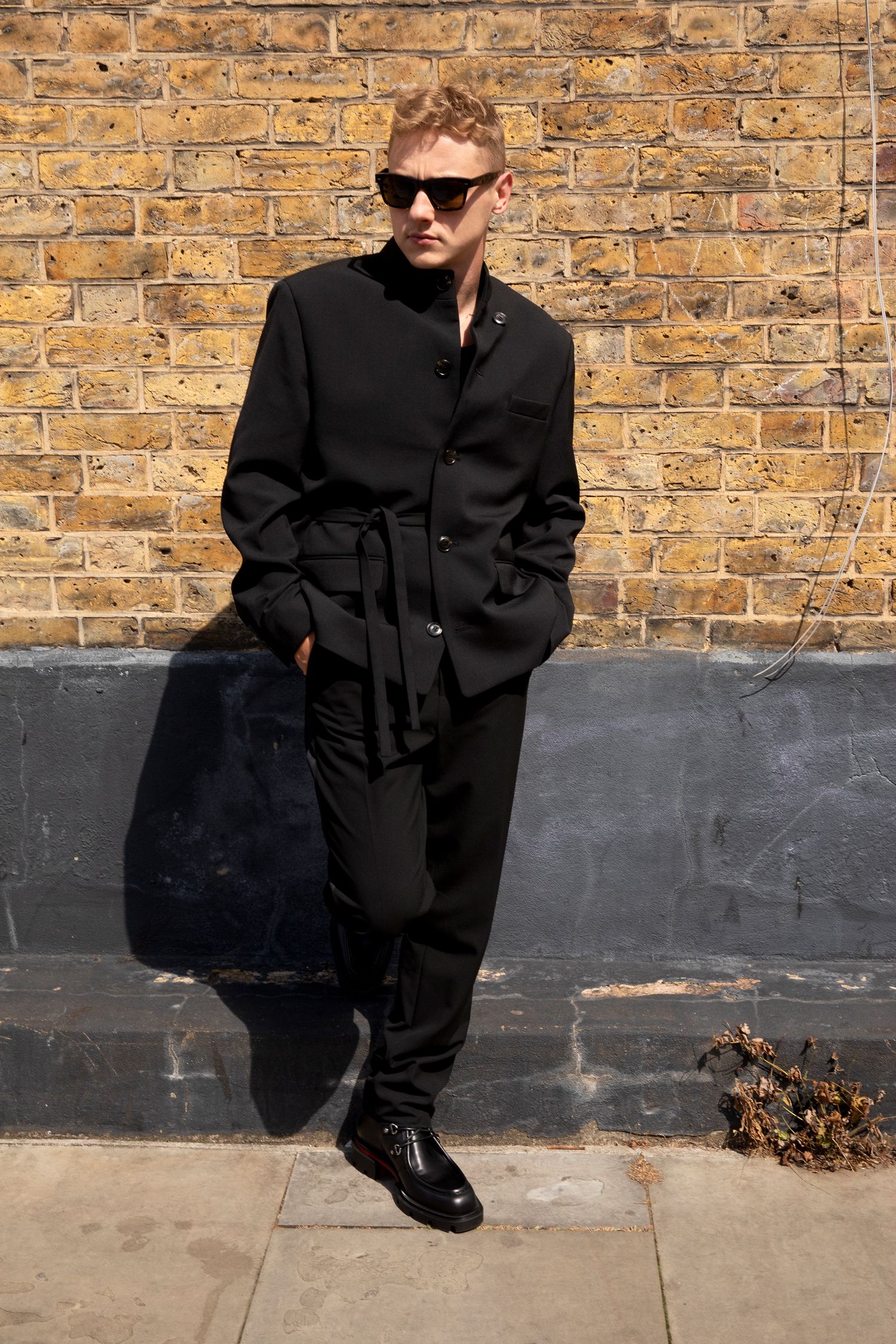
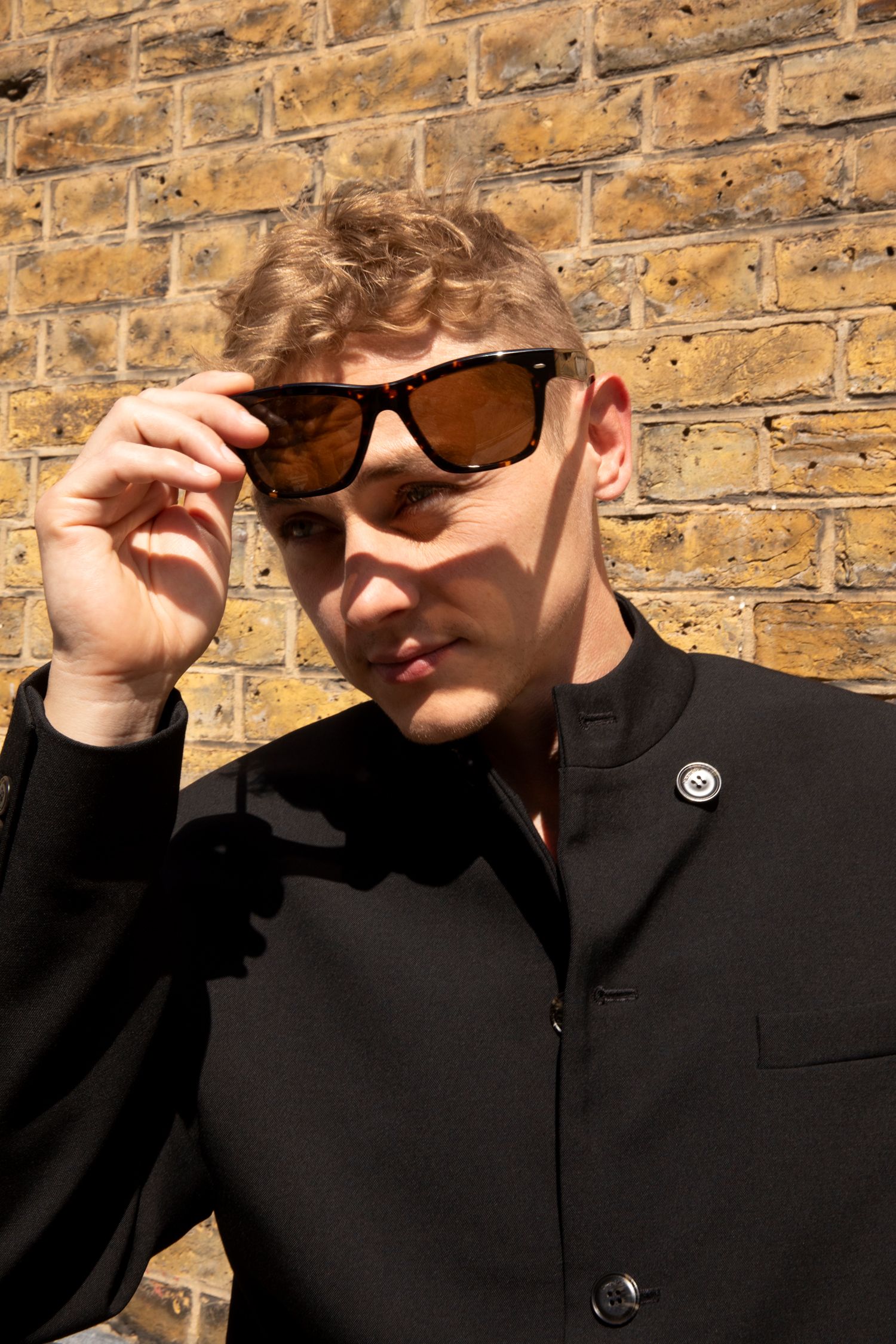
You’ve been acting for over a decade now — how do you feel about your growth since when you started?
As an actor or a person?
I feel like they go hand in hand — the growth as a human informs the growth of the actor.
Yeah, true. I remember my first project so fondly. It was a play at the Donmar Warehouse, and I grew up queuing at 5am to get tickets to go to see plays at the Donmar Warehouse. It was a moment of, “This is actually happening and I’m crossing the line of becoming a professional actor.” I had 10 lines or something, but to me it meant everything. I remember getting the job and I’ve never had quite the same rush as getting that job. After getting the job, I remember feeling adrenaline flood my body and I was just sitting there waiting to finish the meeting before I could just run. As soon as it ended, I got out of the office, ran down the stairs, and ran down the street just completely over the moon.
Do you still feel that rush at times?
I don’t feel that rush when I get a job, but I don’t mind it. Back then, it was much more validating to book a job and say “I’m going to be at the Donmar.” Now, I get excited by projects and I get excited by getting a job, but I’m doing things more from a creative place. I’m still a hungry actor, but I don’t feel… As much of a desperate hungry actor as I was.
Has that change — not feeling desperate or needing to be validated — been freeing for you?
It is freeing. It is liberating. I think it actually makes me a better actor because I’m less… I remember talking to actors when I was that age and we’d be so happy to get a job, and then you’d almost think, “Oh, fuck, I chose to do the thing and I’m nervous about it.” Now I’m excited to do the job, be on set, explore and create. I’m much more confident now. I was much more insecure back then and I needed reassurance. Now, if something isn’t working, I want people to just tell me [laughs]. At this point, I’ve got a bit tired of…
Directors beating around the bush?
Yeah, they’ll say, “That was great and I loved it, but maybe do it this way next time.” [laughs] Maybe I would have appreciated that as a younger actor and it would give me some confidence, but now I just want people to come up to me and say, “I didn’t like that one, that was shit.” I’ll either agree with you or say, “Really? Why? I did it this way because…” Not in a defensive way, but almost like a joke — “You should watch that one back!” I’m just not phased in the same way, I have a stronger sense of what I think works and doesn’t work, but I also very much think that film is primarily a director’s vision. I am an actor, and whilst I can collaborate with that person to facilitate their vision, I’m an instrument amongst a whole load of other instruments.
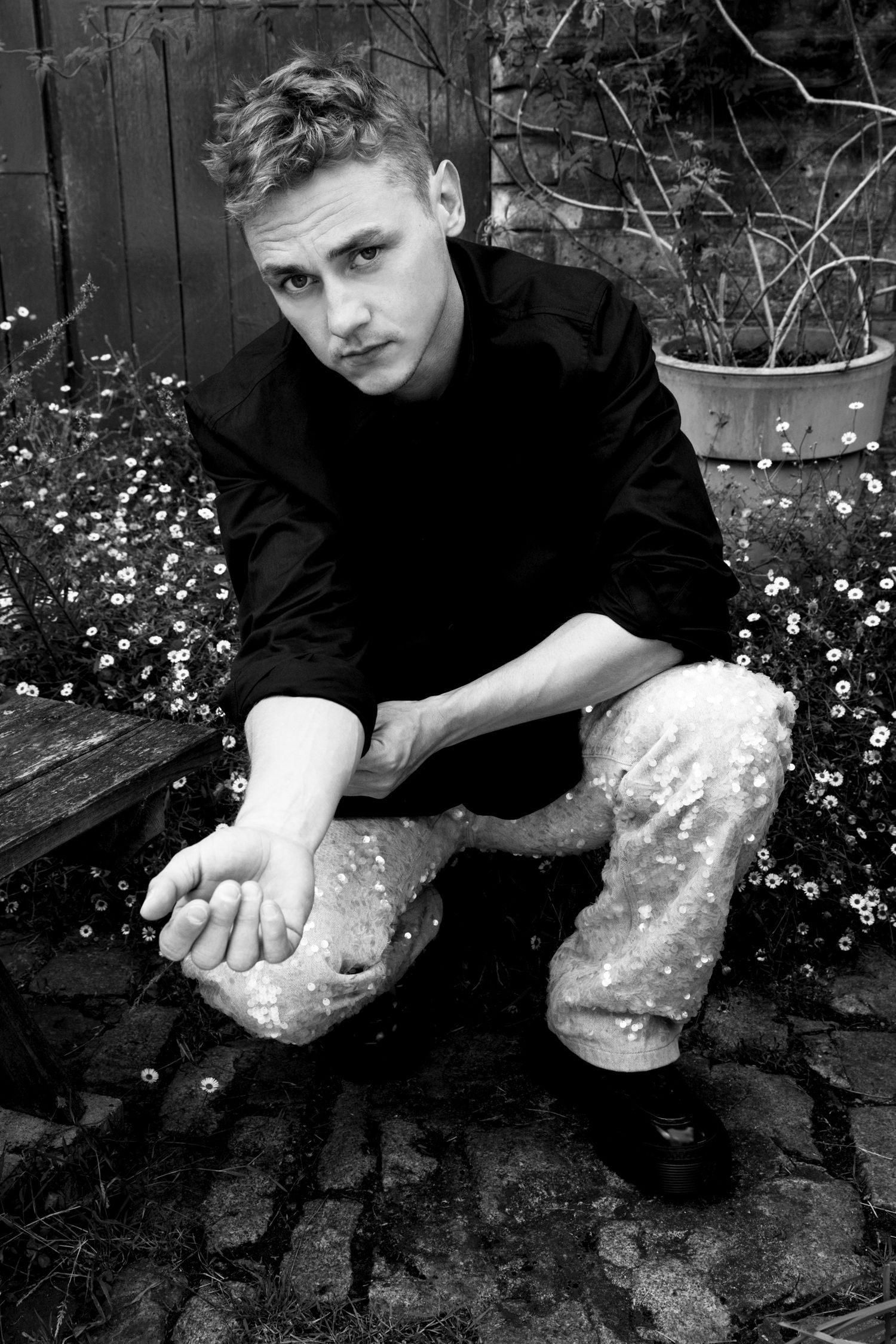
I love that with the growth of your career, you almost have less of an ego now which is interesting considering your career is on the rise.
It’s not so much about having less ego, but more about being less insecure. When I was younger, I wasn’t necessarily cocky, but I often felt uncertain. A few years ago, while working on the show The Woman in White, I had a real crisis of confidence. I even went back to an acting teacher because I felt like a terrible actor. I wasn’t looking for validation, just reassurance. Over time, as I’ve done more work, I suppose that has given me some confidence. Maybe it’s a result of validation from the industry, confirming that I’m capable, which allows me to feel more secure in my abilities. I’d like to think that I could be the kind of actor who remains confident regardless of external validation, even if I never got a job and was only doing amateur dramatics. But it’s hard to say without being in that position.
Did you go to acting school? I tried looking it up on Wikipedia, but I couldn’t find much.
Yes, I did. I went to the Central School of Speech and Drama—now it’s the Royal Central School. I wish it had been “Royal” when I was there; it sounds much fancier.
It’s always after you leave that things improve. They probably added “Royal” because of your impact.
Exactly! [laughs] Just to clarify, that’s a joke, so please don’t make it sound like I’m being serious.
Do you feel like you needed that kind of foundation as an actor?
There were some parts of drama school that were useful, but I think I learned a lot more actually working. When I attended, there was still a mentality of breaking you down — almost like therapy. The idea was to strip you down to nothing to reveal your weaknesses. Some schools even had students strip naked on the first day, though we didn’t do that. We wore all black clothing, called “blacks,” to remove any sense of self, so you could fully embody different characters. I understand the purpose behind it, but it was tough and, in some ways, unnecessary.
I think drama schools are more supportive now, but back then, it was a rollercoaster. One minute, you’d feel like a king if you got something right, but then you’d be brought back down to earth. It created this weird relationship where you were desperate for the teachers’ approval because they were the authority, and getting into drama school was hard. There were some great people there, but also some who weren’t so great.
Coming from Dorset, I had no idea how to get into the industry. Maybe some kids do, but I didn’t. If I had known how to get an agent at 16 or 18, I probably would have skipped drama school. But I got my agent through drama school, so it worked out. Plus, I made one of my best friends there.
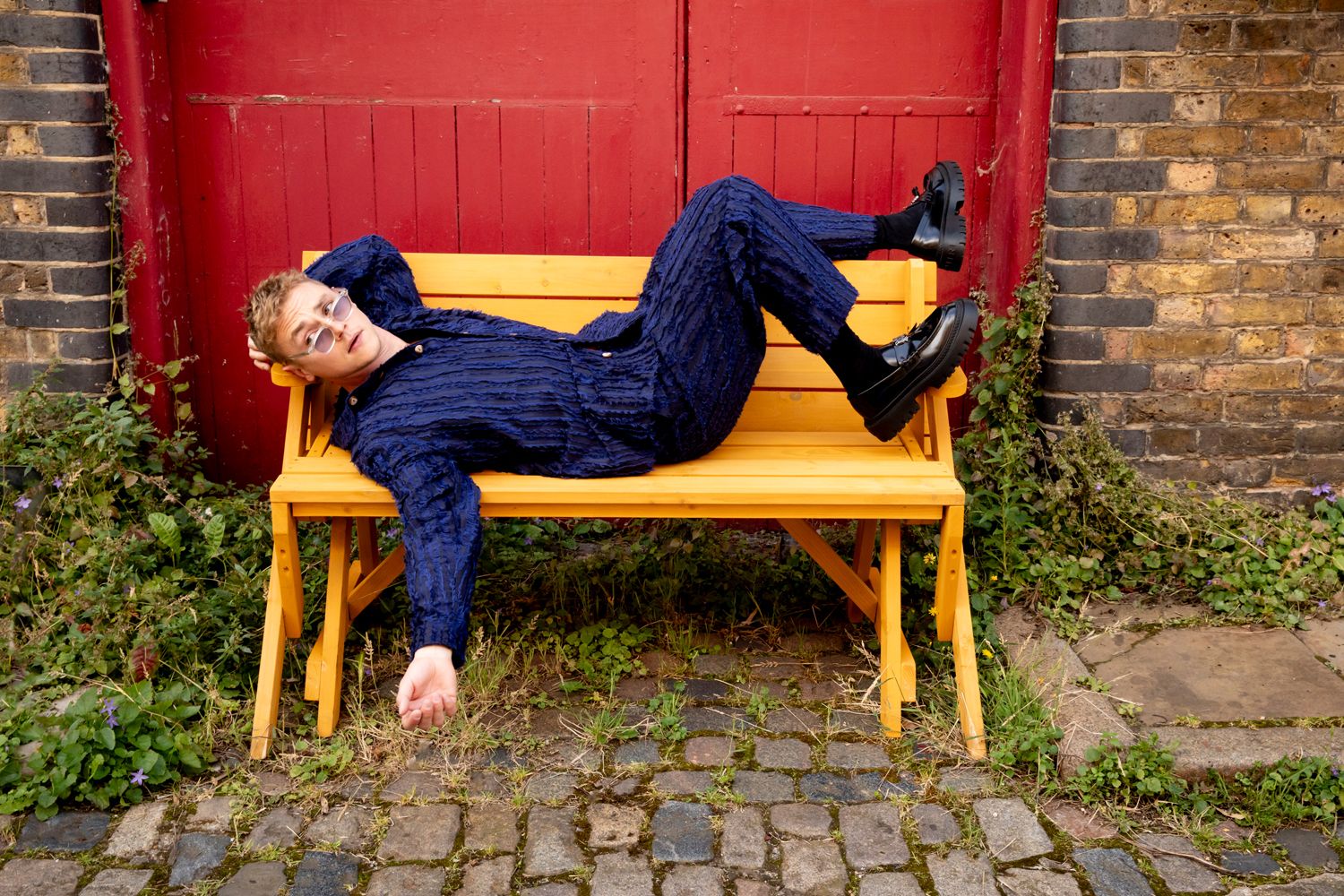
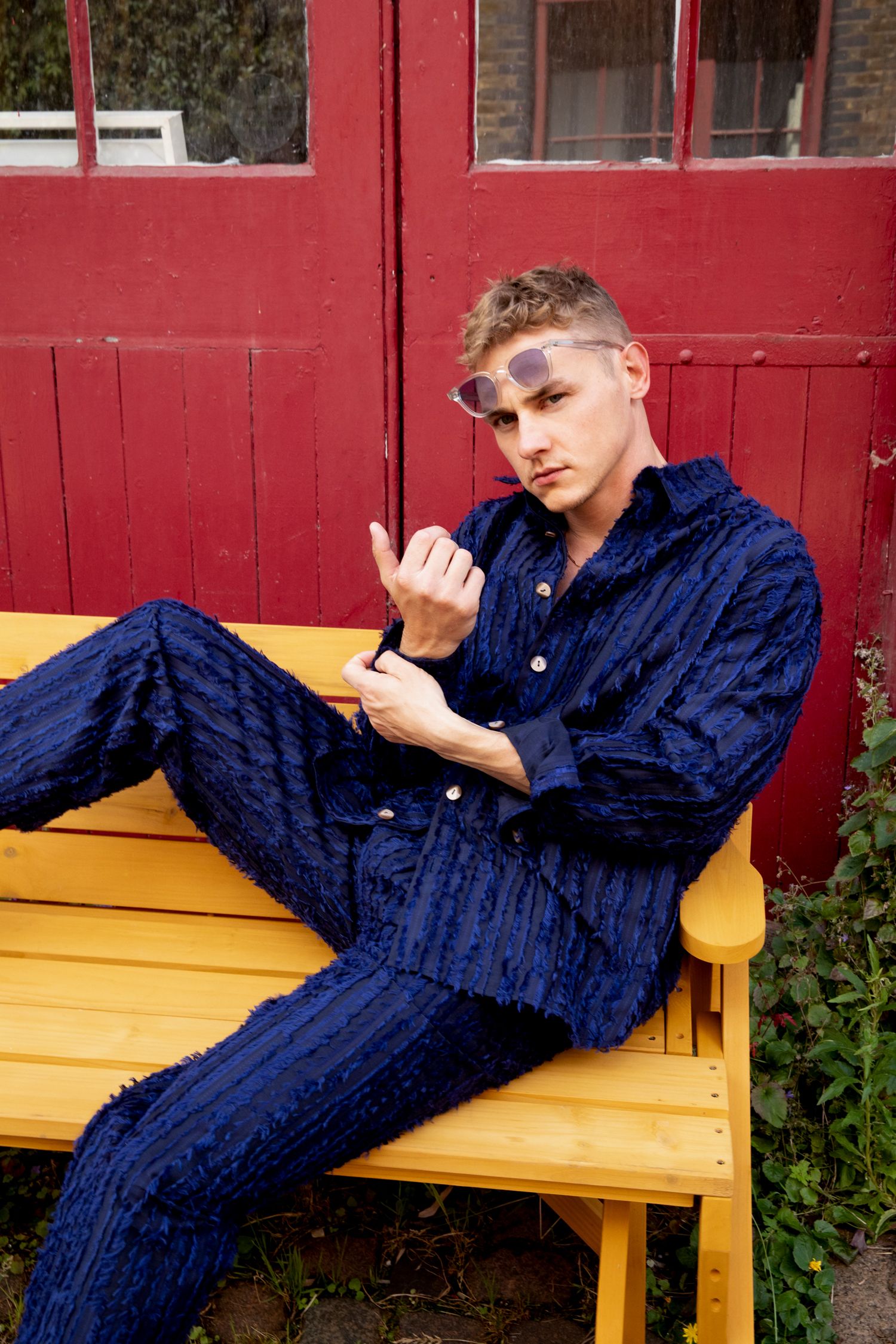
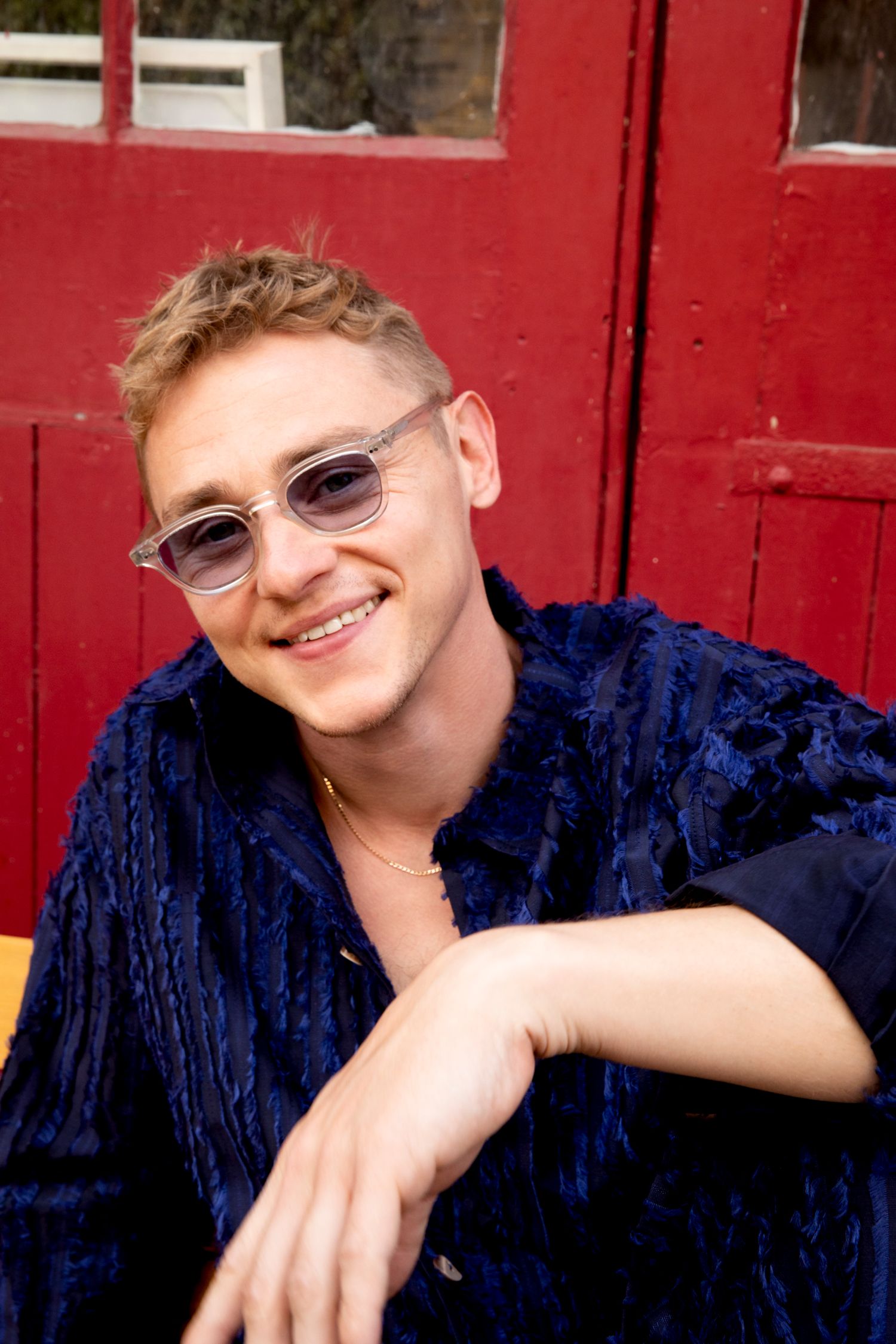
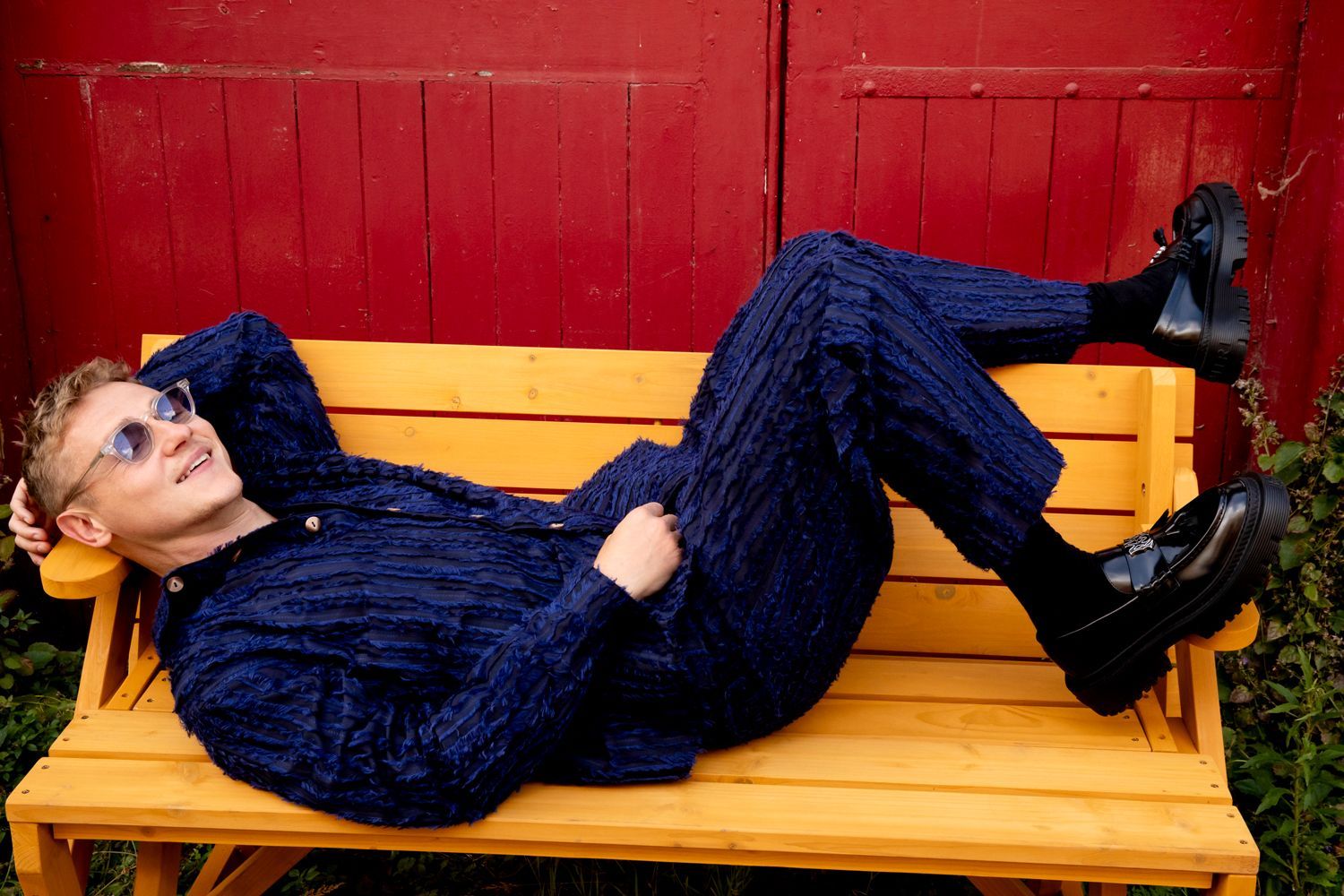
This might be a bit of a left-field question, but when you think back to your childhood, was there something that made you want to be a storyteller?
Honestly, not really. I got into acting more when I was around 15, but I did love Disney movies, don’t get me wrong. There wasn’t one particular thing. I think I had already flirted with the idea of being an actor, but then I went to see a play in Bristol—Hamlet. The actor, Jamie Ballard, was playing Hamlet. I’ve never met the guy, but he did something that really struck me. There’s a line in Hamlet—I can’t remember it exactly, but it’s something like “Words, words, words.” He was delivering this speech, and there was a woman in the front row studying the text, as people sometimes do during Shakespeare plays, which is a pet peeve of mine.
Like checking if the context and delivery are correct?
Exactly. It’s almost like they’ve written notes next to the lines to make sure they laugh at the right moments to prove they understand what’s going on. But during this line, “Words, words, words,” Jamie Ballard noticed the woman in the front row wasn’t even looking at him; she was just reading the text. He grabbed the book from her and threw it out of her hands. I thought, “That’s brilliant. Let’s go! I want to do that.”
You wanted that kind of power.
Exactly.
So, are you a musical lover as well?
Yeah, I love musicals. What’s your favourite?
I’m actually pretty bad with musicals — I haven’t seen too many!
I love musicals, but I need a really special performer or music to truly enjoy it. I get that they have to protect their voices with eight shows a week, but sometimes it feels like they’re holding back. I want to hear that raw, gritty voice where it feels like they’re giving everything, even if it’s probably unfair to ask of someone singing eight times a week. As for favorite musicals, I love Les Misérables and West Side Story.
So, Unicorns — like I mentioned, I saw it at TIFF and loved it. I watched it again last week and loved it just as much. The last thing I saw you in was that rom-com on Netflix, which is quite different from this. What was it about the role of Luke that intrigued you? It’s very different from your other work.
What intrigued me about Luke specifically is that I’m from a small town — Dorset. It’s a lovely place, but it’s not as progressive as London. There were aspects of his community that I could relate to, both the good parts and the more challenging parts. I don’t think I’ve ever had the chance to explore that in a role before. While I don’t believe you can only play characters that reflect your own experience, it’s nice to have some kind of anchor. I felt like I could relate to parts of Luke’s story.
I found it easy to empathize with him and what he was going through, even though I can’t fully relate — I don’t have a child, and my mom didn’t pass away a year ago. But the story felt fresh and interesting, and like something I hadn’t seen before on film. It seemed relevant to our time, almost like the next progression in storytelling. Sometimes films that tackle serious issues can feel like they prioritize education over drama, and I believe films should be judged by the quality of their drama before their level of importance. I’m not a fan of “important” movies that sacrifice storytelling for the sake of being important.
This film, though, felt like a really powerful and beautiful love story. It also covers what it must be like to be a drag queen or to grow up within a marginalized community, and even be marginalized within that community. I thought it was excellent. I had seen Sally’s film The Swimmers, which was incredible, and I really wanted to work with her. So, that’s how it all came together.
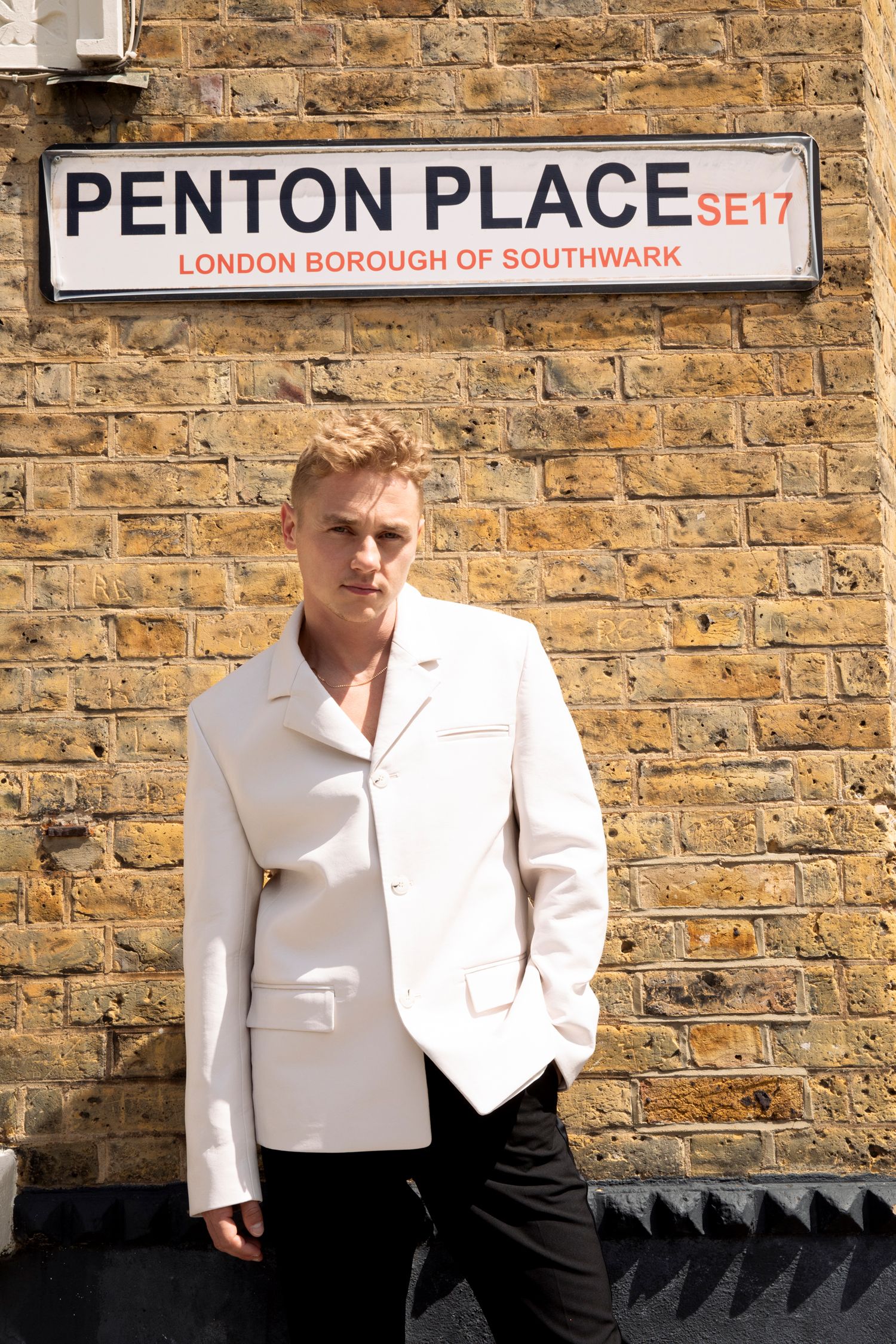
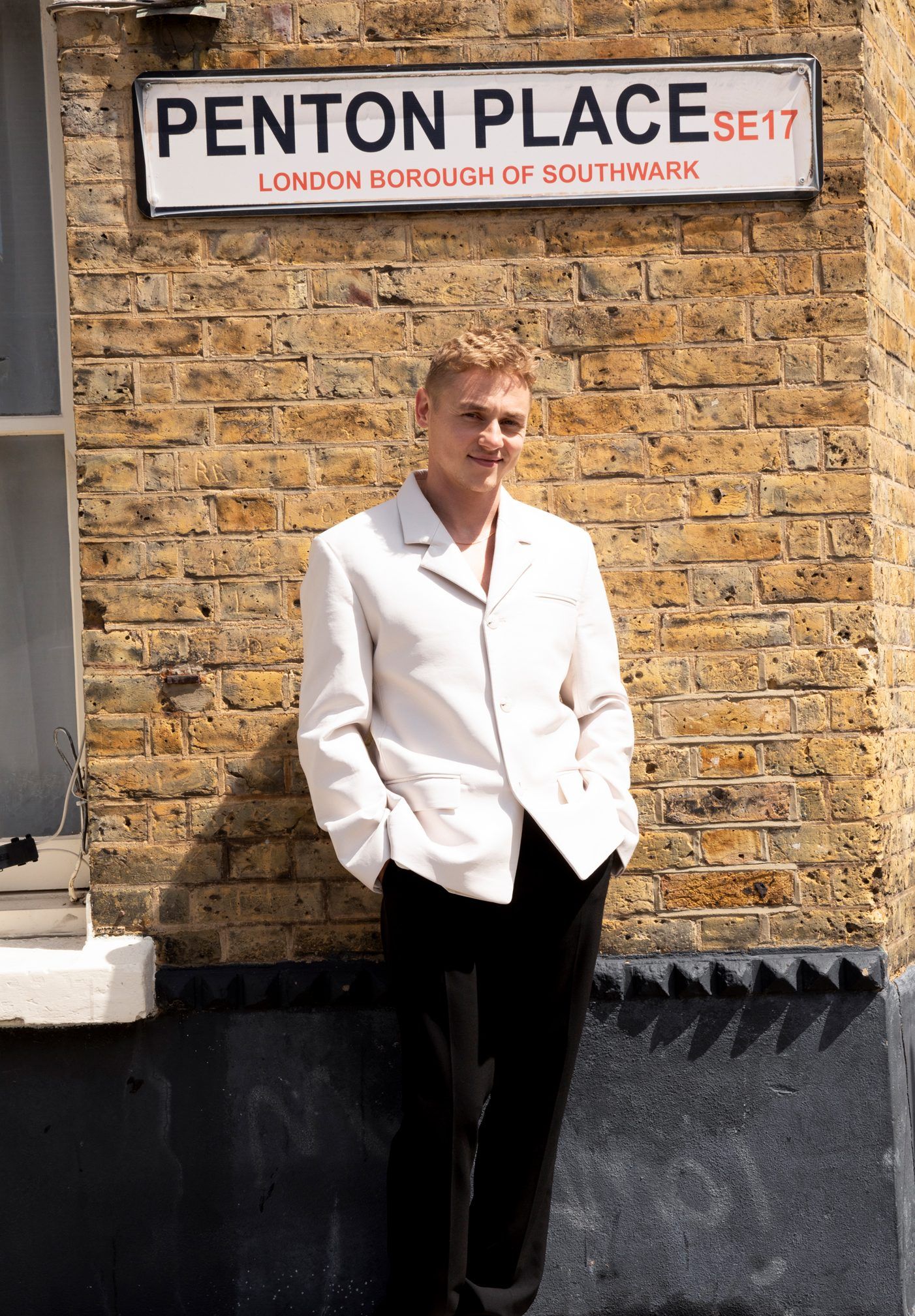
The thing I love about this film is that, while it’s about identity, it also explores how fluid identity is and how it means something different to everyone. Did that come through immediately when you were reading the script?
Immediately, yeah. To be honest, I learned a lot along the way. I was ignorant about many of the themes in the film. I didn’t know much about the South Asian drag scene or even the term “Kothi.” I had no idea about the kind of death threats they receive or the struggles they face. So it was a real education for me as I went through the process. But I enjoy exploring different worlds and people as part of my work as an actor.
The film touches on themes like toxic masculinity. You can see Luke struggling—trying to give in but also holding back. What was it like to explore those themes as a man? It’s a really interesting topic.
Yeah, I suppose I used to be obsessed with masculinity when I was younger.
You’re almost pressured to be, right?
Yeah, completely. I was definitely obsessed with being “the man,” and it led me to do some ridiculous things. This is embarrassing, but you can see this burn mark on me — I once burned myself with a cigarette because I saw a character in The Sopranos get a cigarette thrown in their face. I thought, “I wonder how painful that is. I need to know in case I get into a fight.” So, I stubbed a cigarette on my own hand. Turns out, it’s very painful and pretty idiotic. But yeah, I suppose it’s part of the conditioning. It’s not like my dad was an alpha male or anything, so I’m not sure where it came from.
I think it’s a societal thing. Growing up, especially in the 90s, there was still a lot of emphasis on being macho.
Yeah, exactly. There’s something about the image of someone like John Wayne that’s powerful and even beautiful if that’s who you are. But you don’t have to be that person, and it doesn’t necessarily make you a man or even masculine. It just makes you tough by the definition people consider masculine to be. But toughness can take different forms.
Emotional toughness isn’t just about physical strength—people forget that.
Absolutely. And a lot of those “tough” characters are emotionally vulnerable. I love that about this film—it really explores the idea that people can be whoever they want to be.
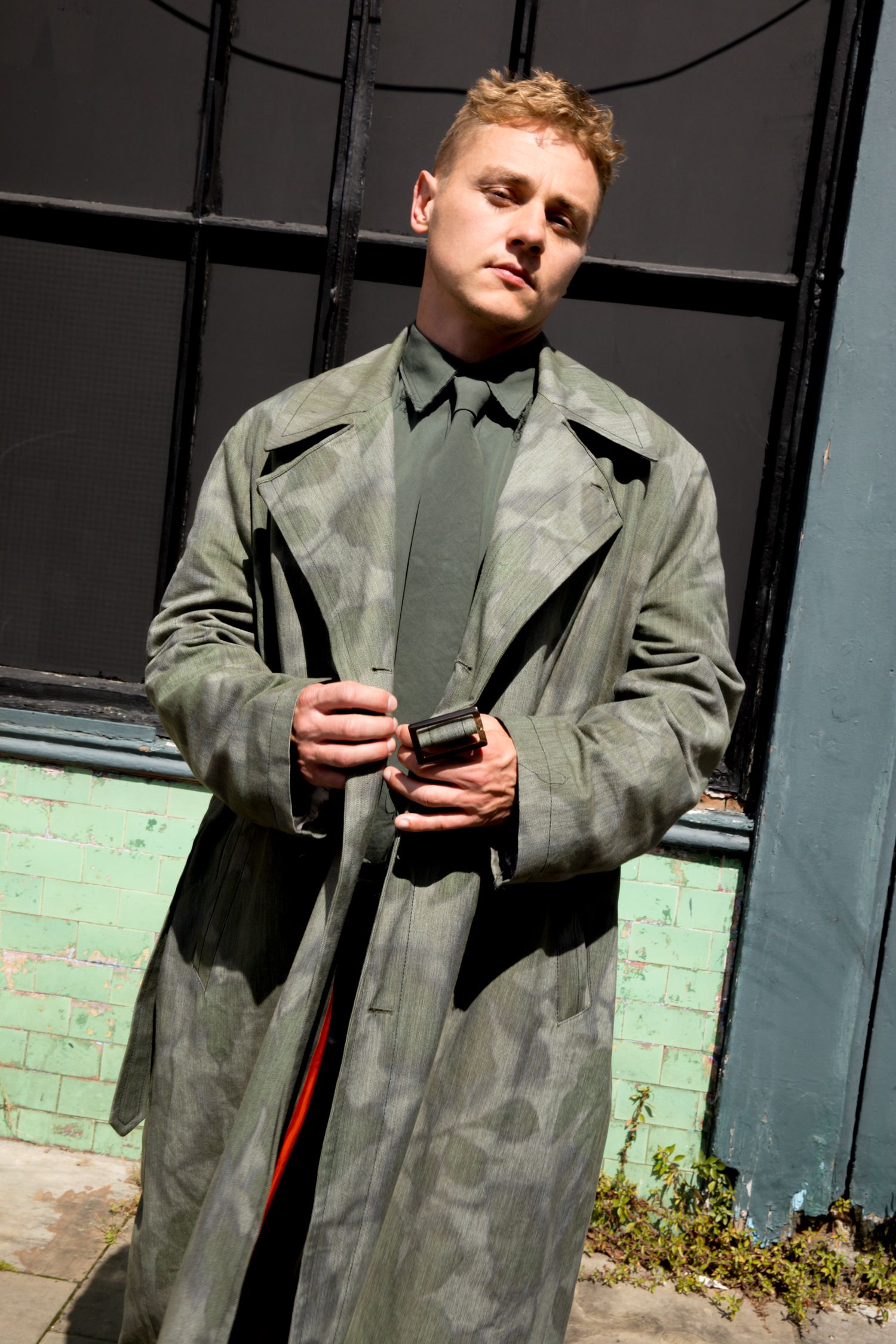
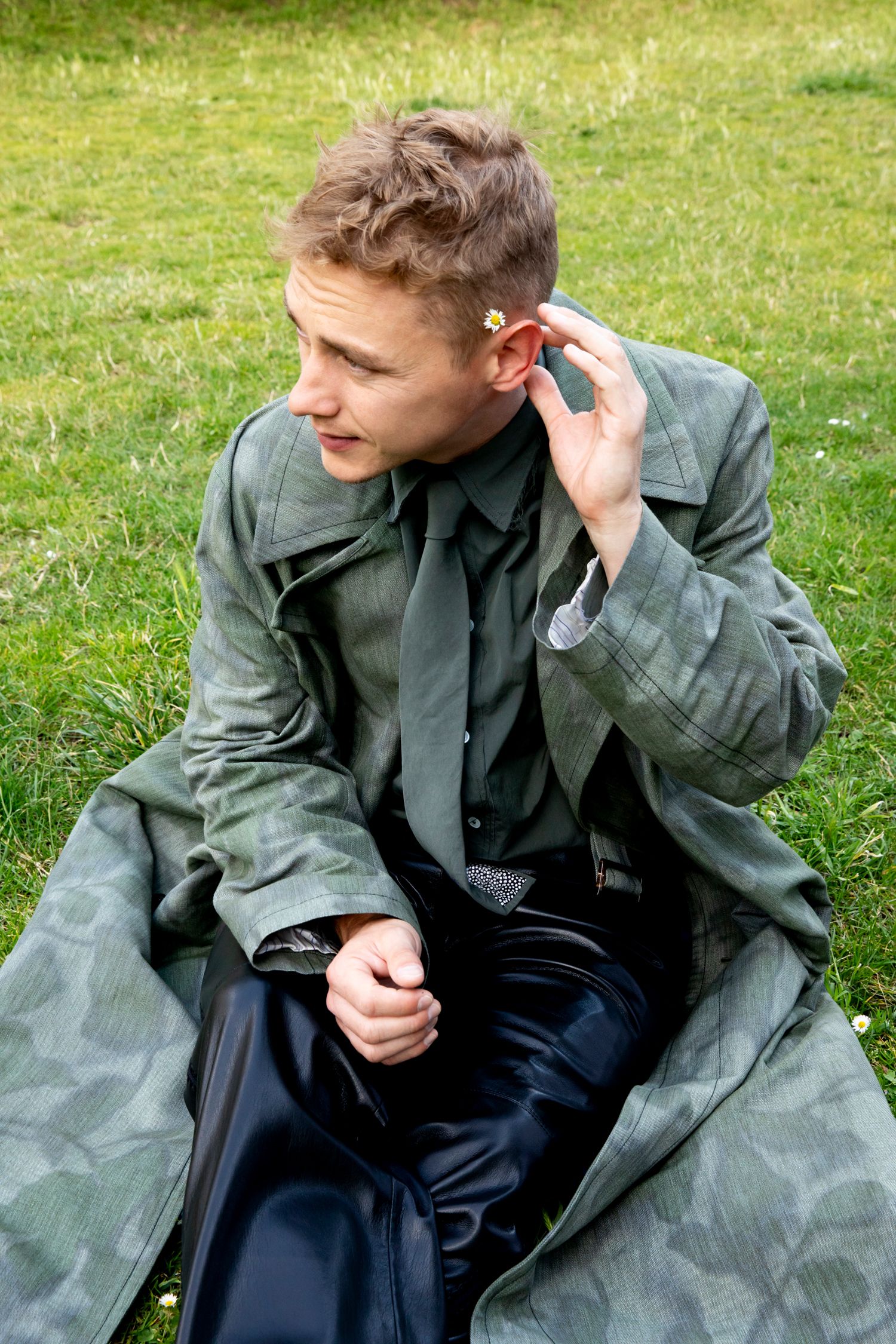
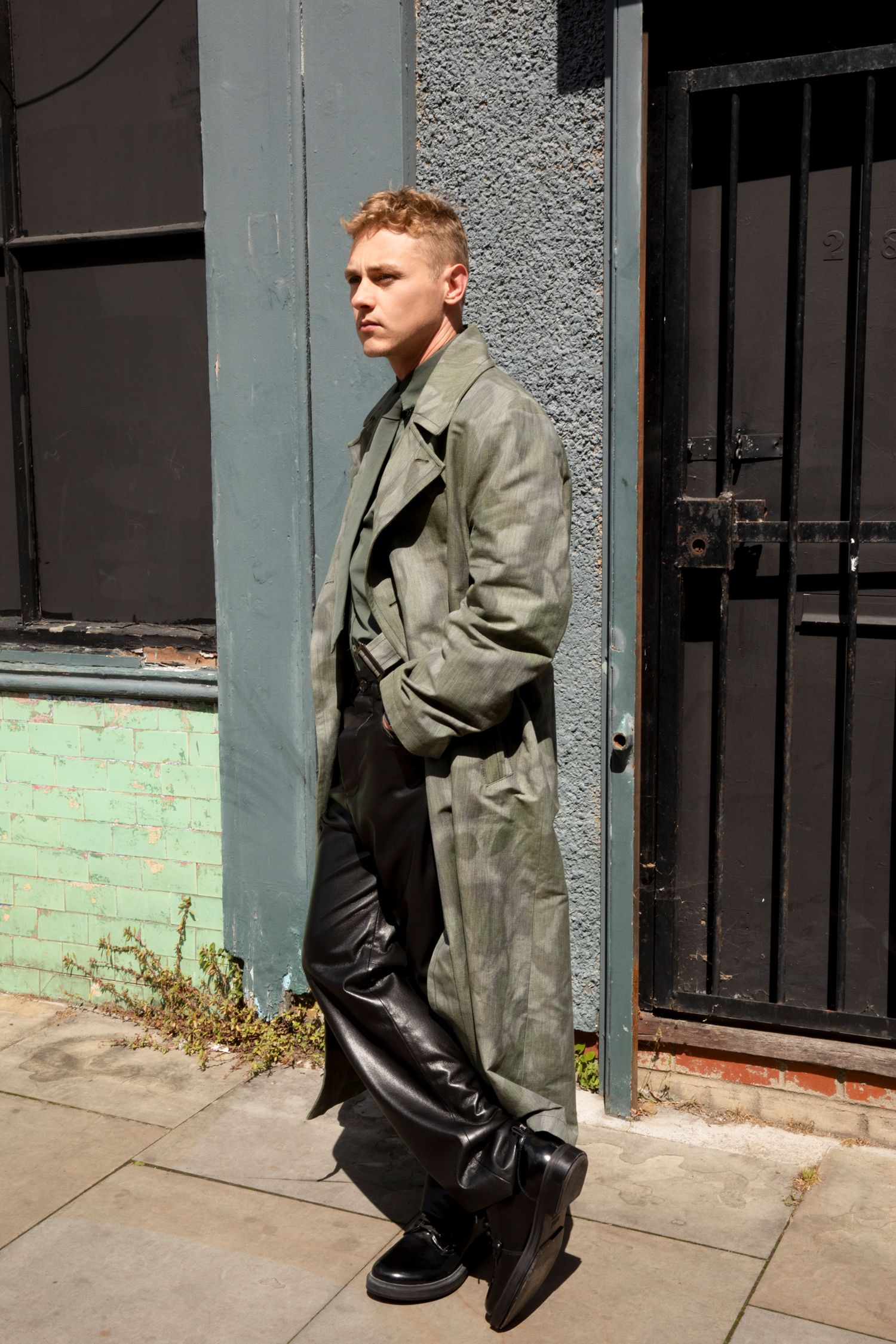
One of my favourite scenes is when characters are just allowed to be whoever they want to be. The karaoke scene, in particular, is quite short and intimate, but you can see Luke starting to allow himself to feel things. Is there a specific scene that really resonates with you in terms of Luke’s character development?
Yeah, the karaoke scene is definitely a pivotal moment. It’s a quiet, intimate scene—just the two of them singing. Up until that point, we’ve seen Luke looking at her with curiosity and a definite attraction, but this is the first time we really see an emotional connection between Luke and her. It’s a significant shift because Luke is wrestling with his own sexuality, and he views it in a very binary way—either gay or straight. He might consider being bisexual, but if you asked him about pansexuality, he wouldn’t know what it is.
Is that the scene that stands out to you? I also love the montage of them driving, showing their rapport building and their relationship growing. It’s really nice.
Yeah, I love that montage too. Another scene that shows a real shift in Luke is when he’s with Emma, his fiancée. It’s the first time he truly lets go of that relationship. He holds a lot of anger toward her, but there’s also a longing for her to come back. When they kiss, it’s fine, but it’s the first time Luke realizes he doesn’t want that anymore. It’s a moment of closure along that path.
Yeah, he’s letting go of that path he was holding on to, or walking alone.
Exactly. That moment brings him closure.
I know actors don’t always love this question, but I’m curious—what kind of preparation did you do for this role? I know you did some research and spoke to friends in the community. Did you make any playlists to get into Luke’s head? What was that process like?
I always make a playlist, yeah. For this one, there was a lot of Nothing But Thieves on it, actually, because they’re from Essex, and I think I latched onto that. I usually have a song for different scenes, which helps me stay focused. As Ben, I often have a song going on in my head, which can be frustrating, but it acts as an anchor to bring me back to the scene if I get distracted.
That makes sense—it pulls you back into reality, grounds you a bit.
Yeah, fictional reality, I suppose, but it helps. Music is definitely important to me. These days, I focus more on the physical aspects of a character rather than just the cerebral. Acting can be quite scary, exploring different emotions and things like that. Now, I spend a lot of time working on the voice, the accent, and how the character moves. I’d spend hours just wandering around as Luke, especially in Essex, to really get a feel for it. It’s a bit nerve-wracking, but it’s a good kind of scary.
We also spent hours with Sally and James going through the script and the whole world of the film. It was incredible—it really felt like everyone was 100% on the same page. Not that we couldn’t play and explore on set, but the whole process felt unified. Often, as an actor, you come to set with your own idea of what the film is, but this time, it felt like we were all aligned from the start.
It’s interesting how the idea of “unicorns” can symbolize something different for everyone, but when it comes to making a film, having a unified vision is crucial.
Yeah, absolutely. If I were to direct something, I’d make it a priority to ensure everyone is on the same page. You can be a great actor, but if you’re not aligned with the film’s vision, it can throw things off.
I understand that. It’s like a puzzle piece that just doesn’t fit, right?
Exactly. It can stick out like a sore thumb, which might be intentional in some cases, but often it’s not what you want. So having everyone on the same wavelength from the start is really important.
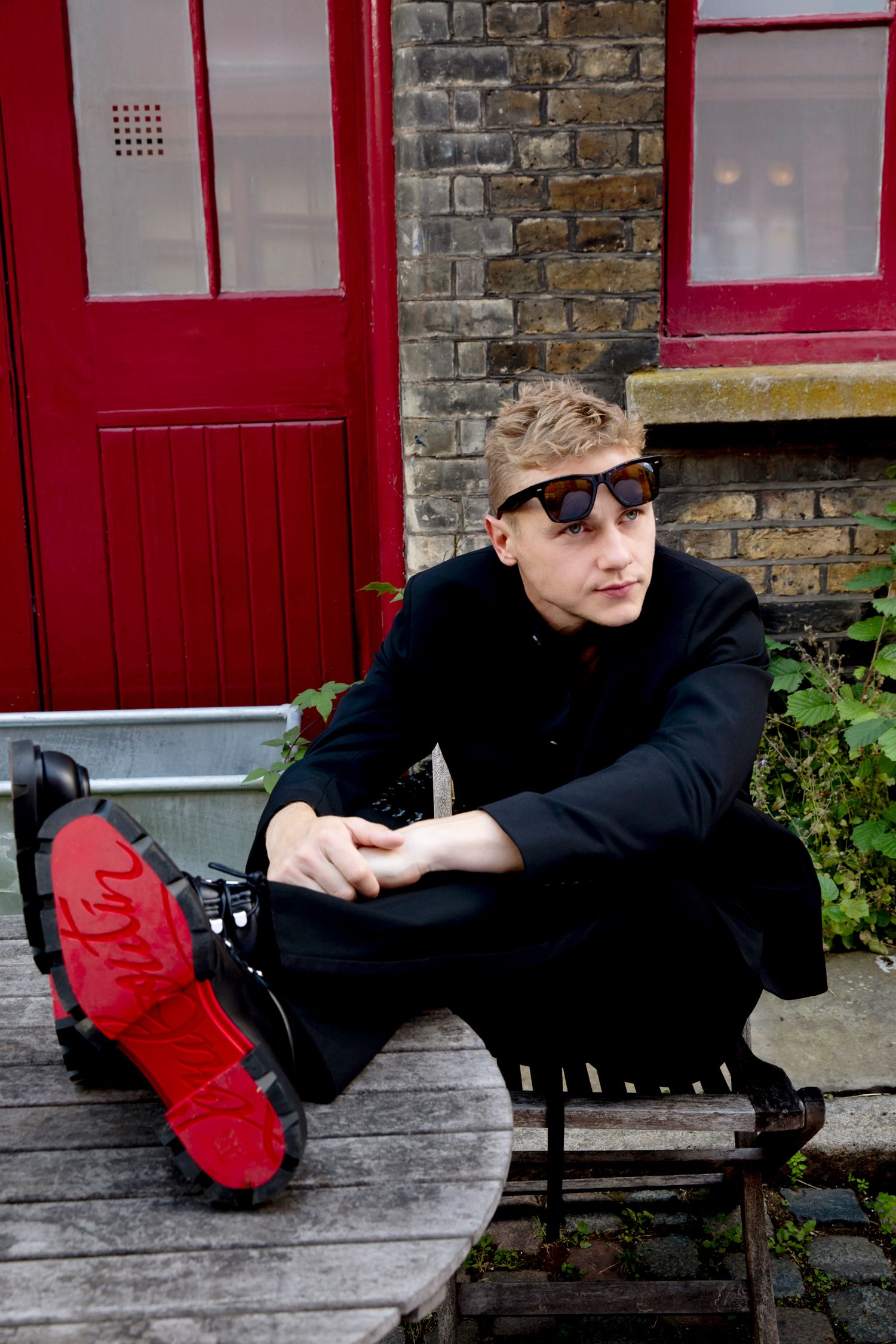
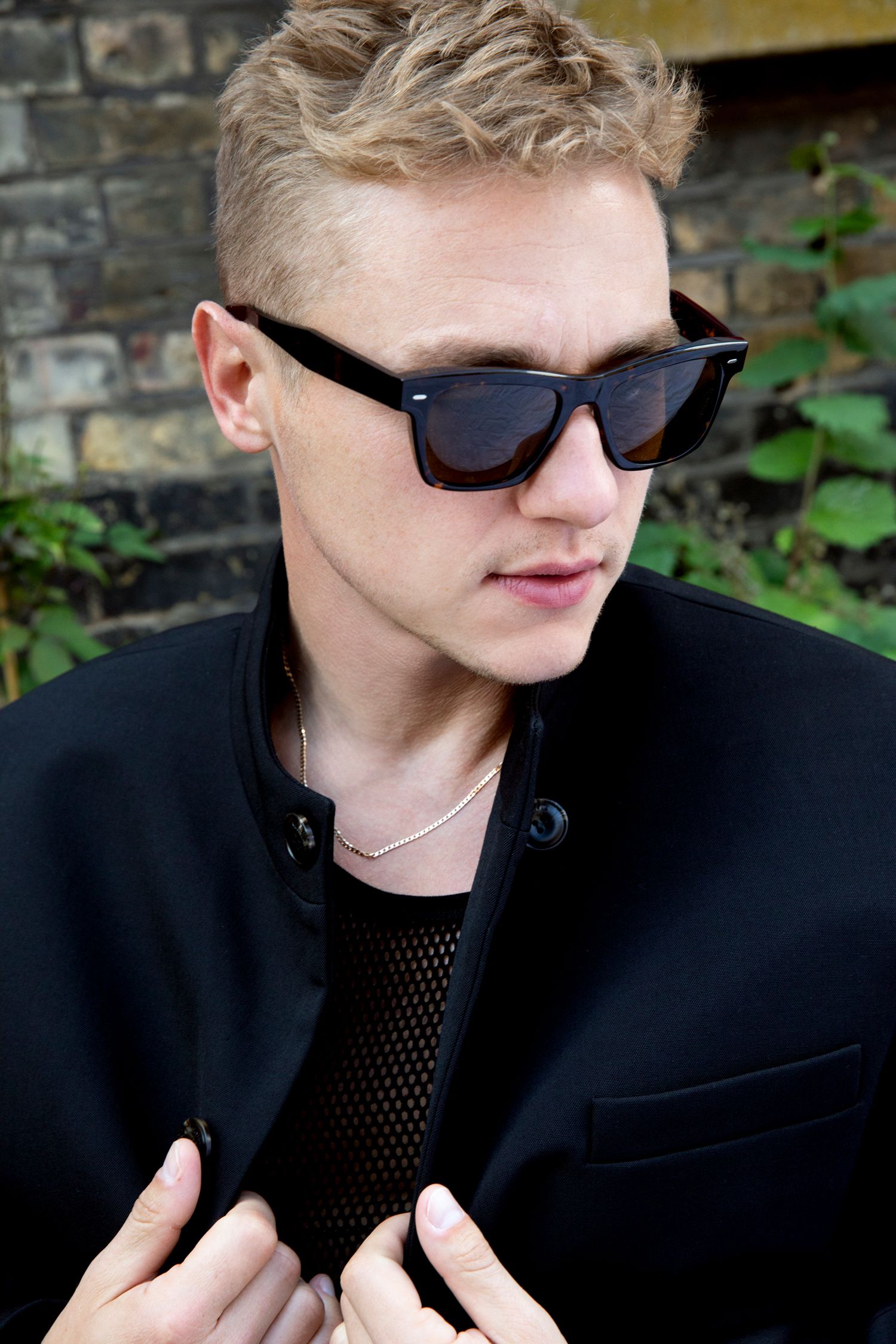
I wanted to ask about the physicality of Luke because he walks differently than you. Was that just a mindset to switch to or did you have to build up to it?
These days I like to stay both vocally and physically in a character from the minute I get in the car in the morning and until I leave.
Makes sense, I think jumping in and out would be exhausting.
Some actors can jump in and out and still nail it, but for me, especially with accents, I need that continuous immersion. If you’re focusing on the accent during a scene, you’re not fully in the moment. By staying in character all day, I can make the accent feel natural, like it’s second nature, rather than something I’m just putting on.
That makes sense, especially if you want the audience to believe your character really lives in Essex or is from there.
Exactly. The more time I spend in it, the less I have to think about it, and the more I can focus on what’s actually happening in the scene. I found it hard at first but I worked with a great dialect coach and he’d just want me to make it as second nature as possible… Almost to the point where I’d go home and speak to my then-girlfriend and she’d be like, “Stop doing the accent!”
How much does the actual act of putting on a costume help you with character and world-building?
A lot, actually. I’m probably a bit particular about costumes, which might be annoying for costume designers, but it’s because I feel like it’s another anchor into the character. When I put on a specific outfit, it helps me step into that character’s world. It’s like, when I’m wearing this, I’m him. Some actors have this thing with shoes, and I guess I do too, but it’s easier when the costume is completely different from what you’d normally wear. Like, if you’re doing a period piece and you’ve got on some Cuban heels, it’s like, “Okay, this is my character’s shoe.” But when it’s something more modern, like a pair of Adidas, it’s different, but it still informs the whole thing.
That makes sense. The physical act of putting on clothes that aren’t yours can help shift your mindset, right?
Yeah, absolutely. It changes the way you feel. Even in everyday life, like when you’re going out or attending a big event, dressing up can totally change how you carry yourself.
I know some actors who use different colognes for different characters. Did you consider that at all for Luke?
No, I didn’t use any cologne for Luke. It felt like something he wouldn’t spend money on. He’s not someone who would justify spending on that kind of thing. It’s really about staying true to his character. Luke’s practical and doesn’t splurge on luxury items like cologne. For me, it also felt like something was missing without it, but that was part of immersing myself into his world.
So even though you felt a bit “naked” without it, it was more about staying authentic to the character?
Exactly. I even used Lynx shower gel just to have some kind of scent, because I didn’t use anything else. It’s all about maintaining that sense of who the character is and their identity.
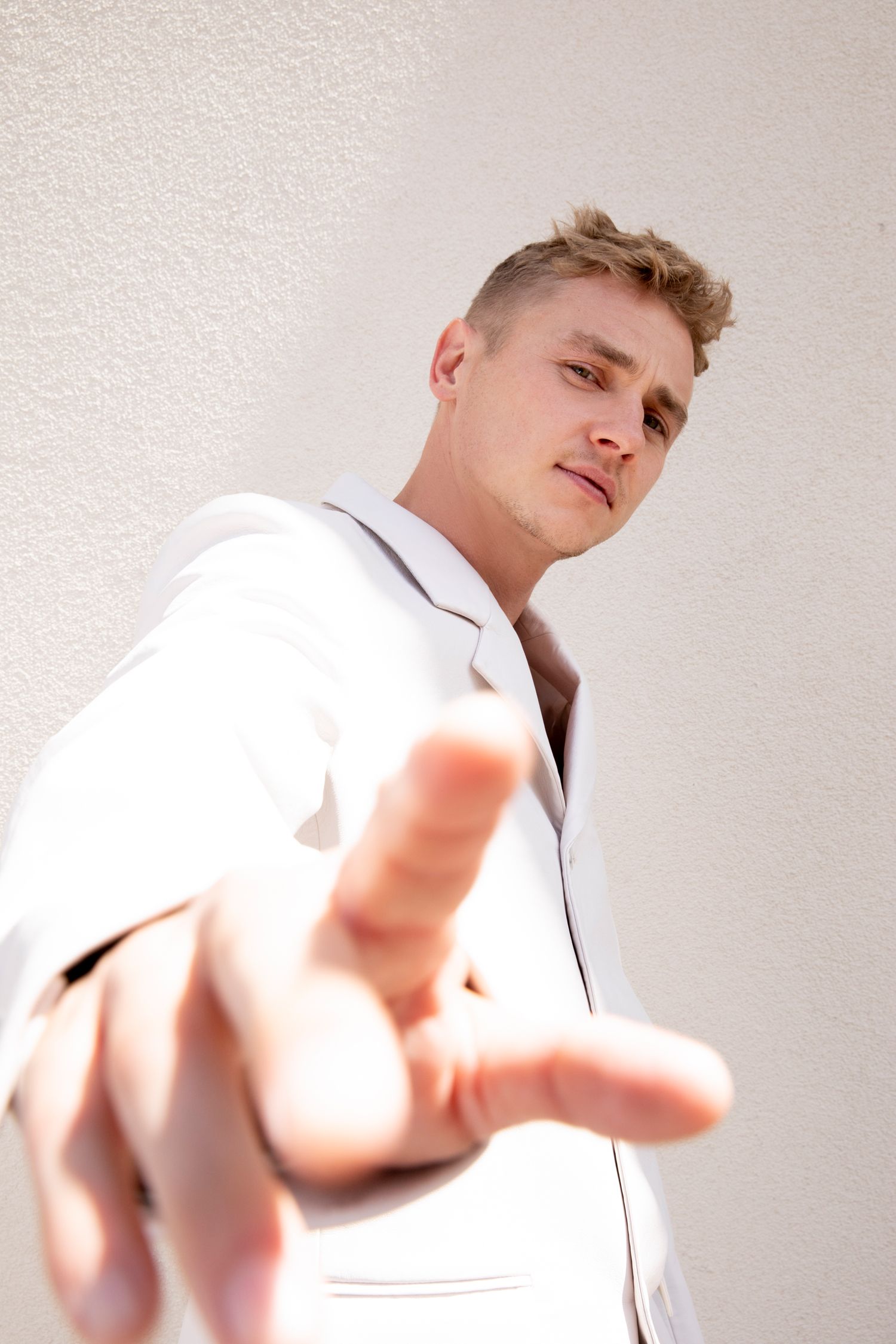
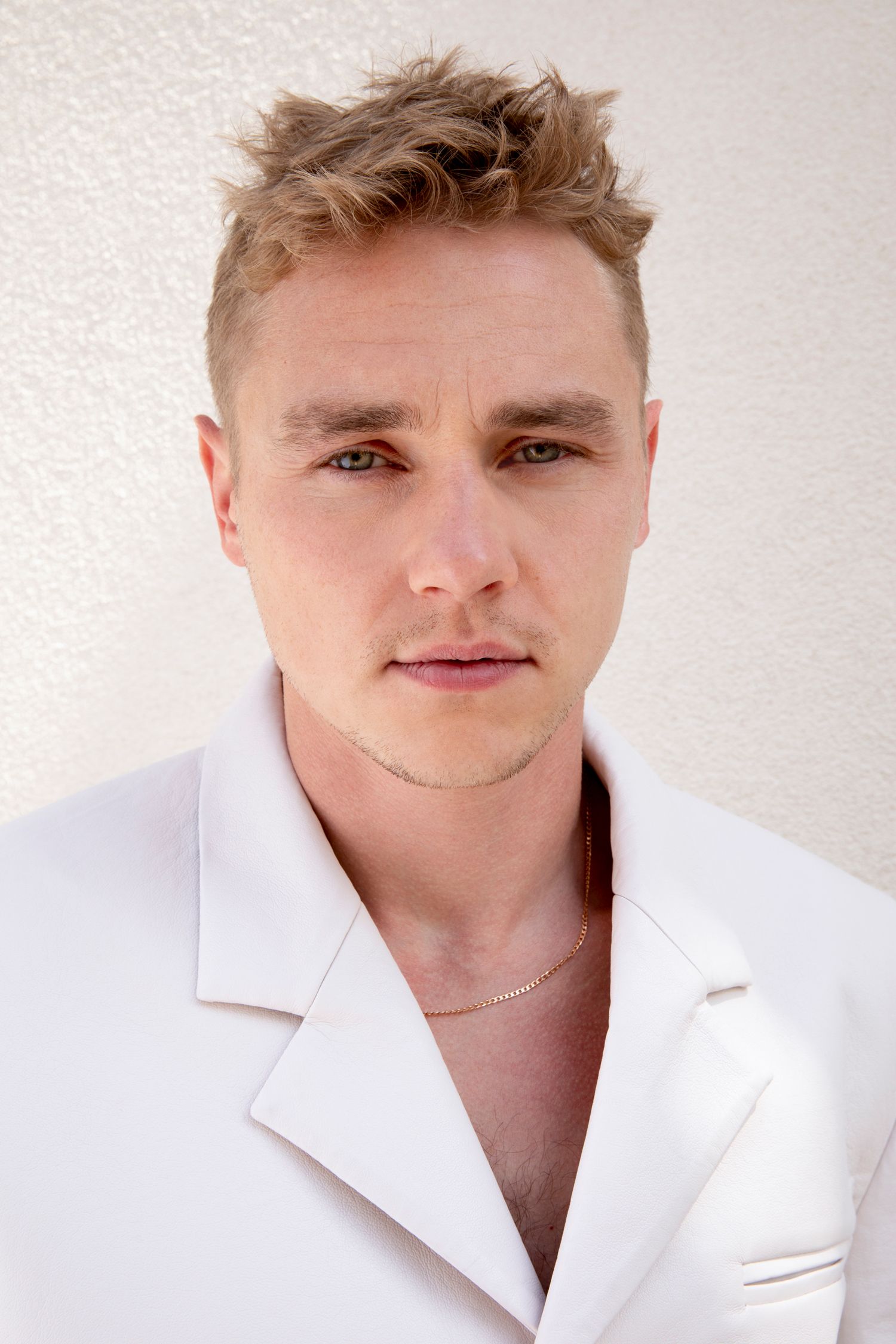
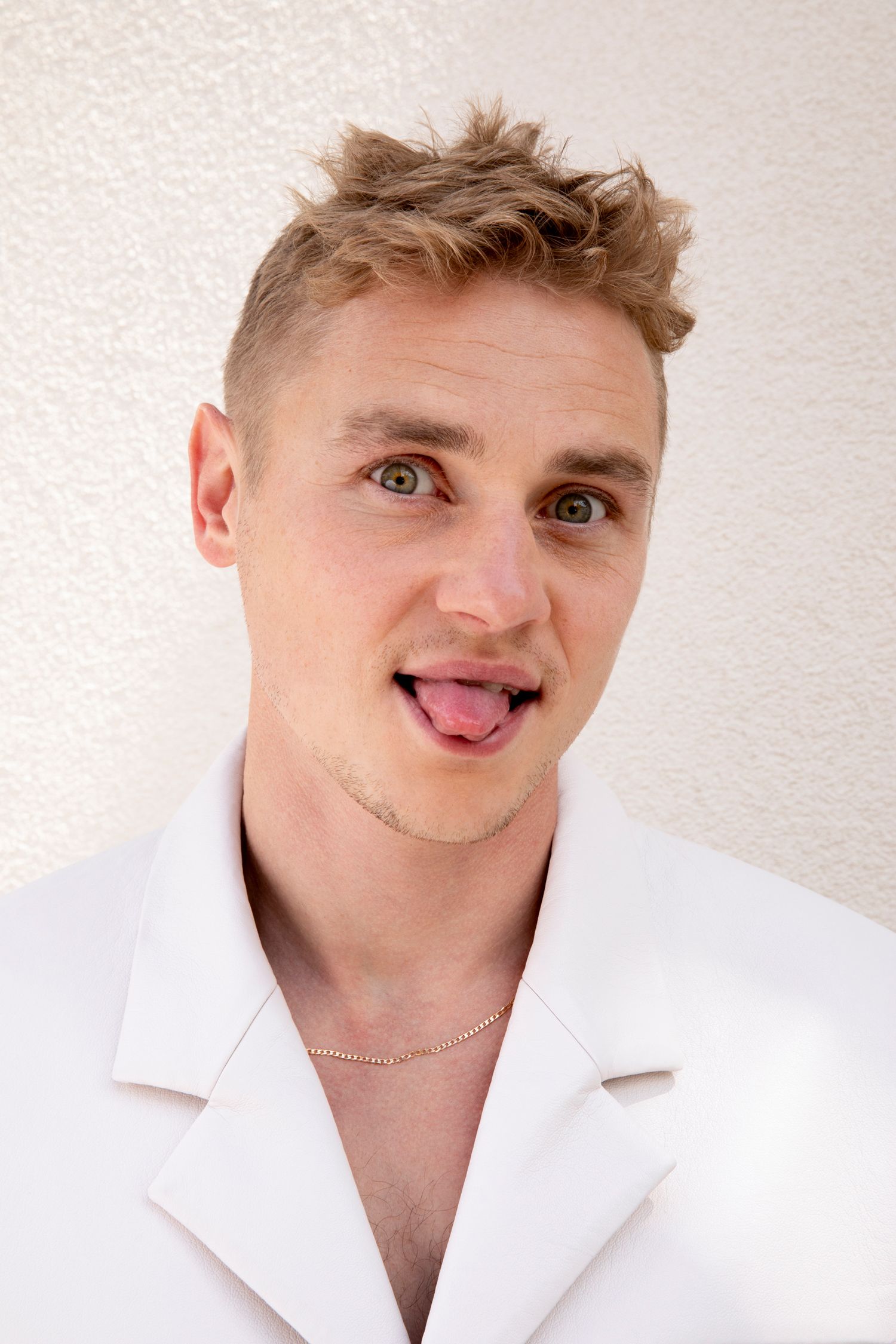
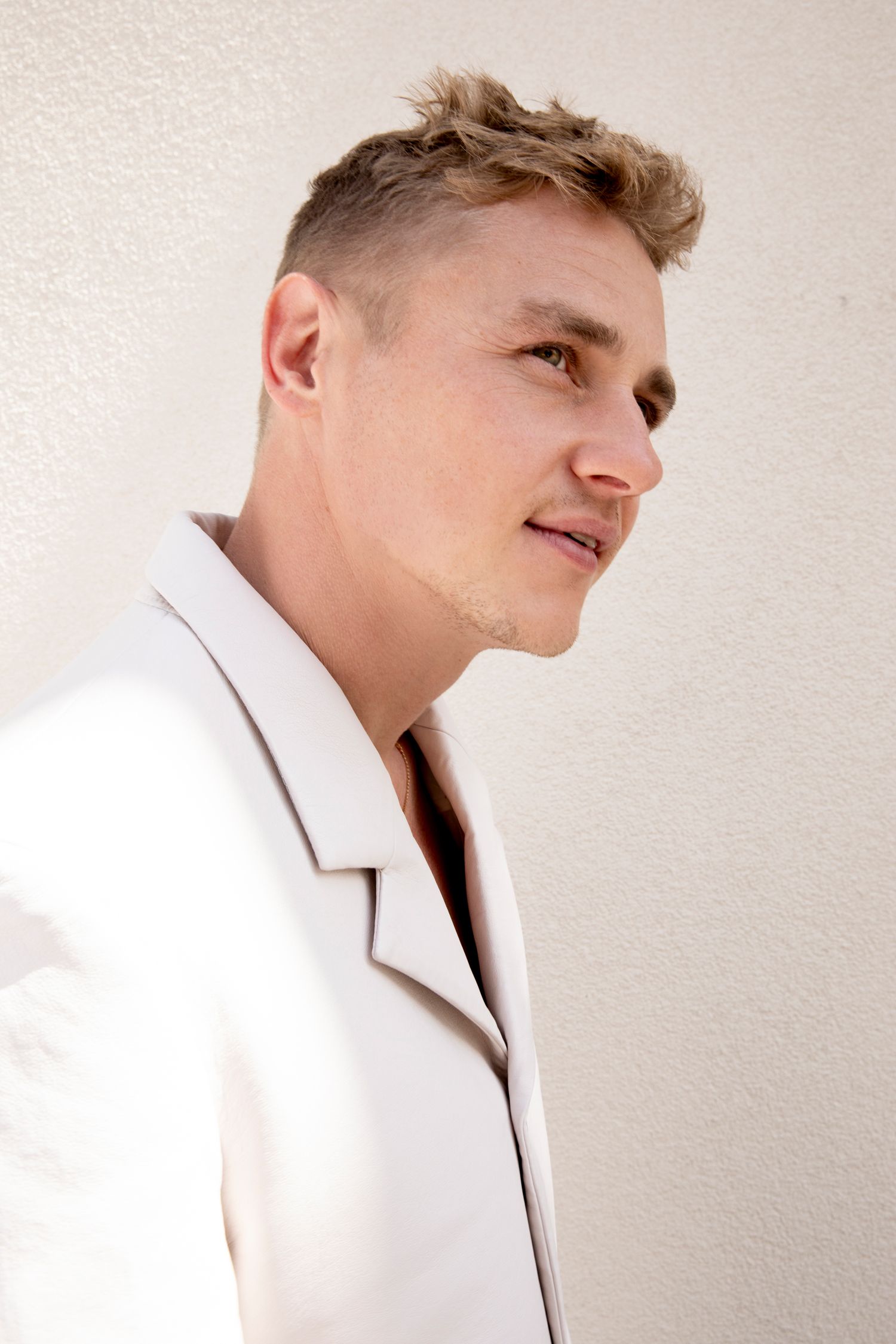
The film’s overarching theme of identity being changeable and malleable is really compelling. How has it made you reflect on your own identity, if at all?
It definitely has made me think more deeply about identity. One thing I’ve learned from James Floyd, the writer, is how people can get caught up in their “hashtags”—the labels and categories we use to define ourselves. His sentiment about transcending those labels really resonated with me. It’s about being more than just your hashtag, more than your pronouns, and more than the categories people put you in.
I love that scene where someone says their pronouns are “icon/legend.” It’s a great example of how humour can be a way to address these themes.
Absolutely, that line from Jason is brilliant. It’s a perfect mix of humour and truth.
So, has exploring these ideas about identity changed you personally?
It’s definitely made me think about it more. I wrestle with the concept of self and what identity truly means. Is it defined by our past actions, our future potential, or who we are in the present moment? Or are we all just interconnected beings in the universe? I don’t have all the answers, and no one does, but just being open to these questions and exploring them feels like a shift in itself.
Being open to those questions and curious about them is a significant step in itself.
I suppose that’s a shift in itself.
I read that you guys didn’t use any intimacy coordinators for the sex scenes which is a bit unique now. What was the decision process behind that?
I’ve worked with intimacy coordinators, and they’re great, and I would always want someone to have an intimacy coordinator if they wanted one. I’ve not felt the need for one personally. It was a blessing not to have one in this instance. Sometimes it can disrupt playing into the natural chemistry. Sex is a very primal thing when you break it down, so when you start making it very clinical it becomes like sex by numbers. We were fortunate in that Sally and James were keen on not having an intimacy coordinator. We did have a closed set, and I didn’t mind. My only fear was whether Jason minded or not, especially as it was a big thing for him. I didn’t want him to be saying yes to something because I was comfortable with it. I didn’t speak to him about it or anything, I just flagged to the directors to make sure that he is okay with that. We’re good friends now, and I think I can safely say that he was 100% fine with it, but thankfully, it worked out that way. We both did our best to make each other feel comfortable in that scenario.
They kept you both pretty separate, too, right? To keep that nervous, first-time-meeting energy?
Yeah, we did the chemistry really together, and then we didn’t see each other until first day of filming, which was the sex scene. It was to keep that sexual chemistry alive. If we would’ve spent time together before, maybe we would have been too comfortable.
If you could give Luke a piece of advice at the end of the film, knowing what you know about his journey, what would it be?
At the beginning or at the end?
Let’s say at the end.
I don’t think I’m qualified to give him advice [laughs]. I think for Luke at the end of the film, I’d tell him that there’s still a lot more to navigate in his journey. He’s made significant strides, but there’s a lot more to come. I’d advise him to continue being true to himself and to remain resilient. It’s beautiful what he’s achieved, but the world outside still has its challenges. Could he realistically stay in his area as a man that’s openly in a relationship with a drag queen? I wouldn’t know how to navigate that situation. So, keep pushing forward and stay hopeful. I hope that someday he finds a world where his relationship and identity aren’t met with resistance.
That’s really thoughtful. Last question: if you could manifest something for yourself this year, what would it be?
I don’t really believe in manifesting in the traditional sense.
Interesting, what about it do you disagree with?
I feel like it implies that bad things happen because of negative energy, which doesn’t sit well with me. What makes manifesting work for some people is that it empowers them, because they feel like they’re in control and that the universe will support their efforts. It can give them the confidence to put themselves out there and pursue things like promotions or new opportunities. It’s about shifting from a mindset of “I’m not good enough” to “I can achieve this.”
For me, though, I’m more focused on actively pursuing goals. I don’t rely on the universe to deliver results; I believe in working hard and hustling. The outcome isn’t guaranteed, but putting in the effort is what matters. I’m much more of the mindset of go out there and get it. You can’t guarantee but you just have to keep hustling. Maybe things will happen, maybe they won’t. But at least you tried.
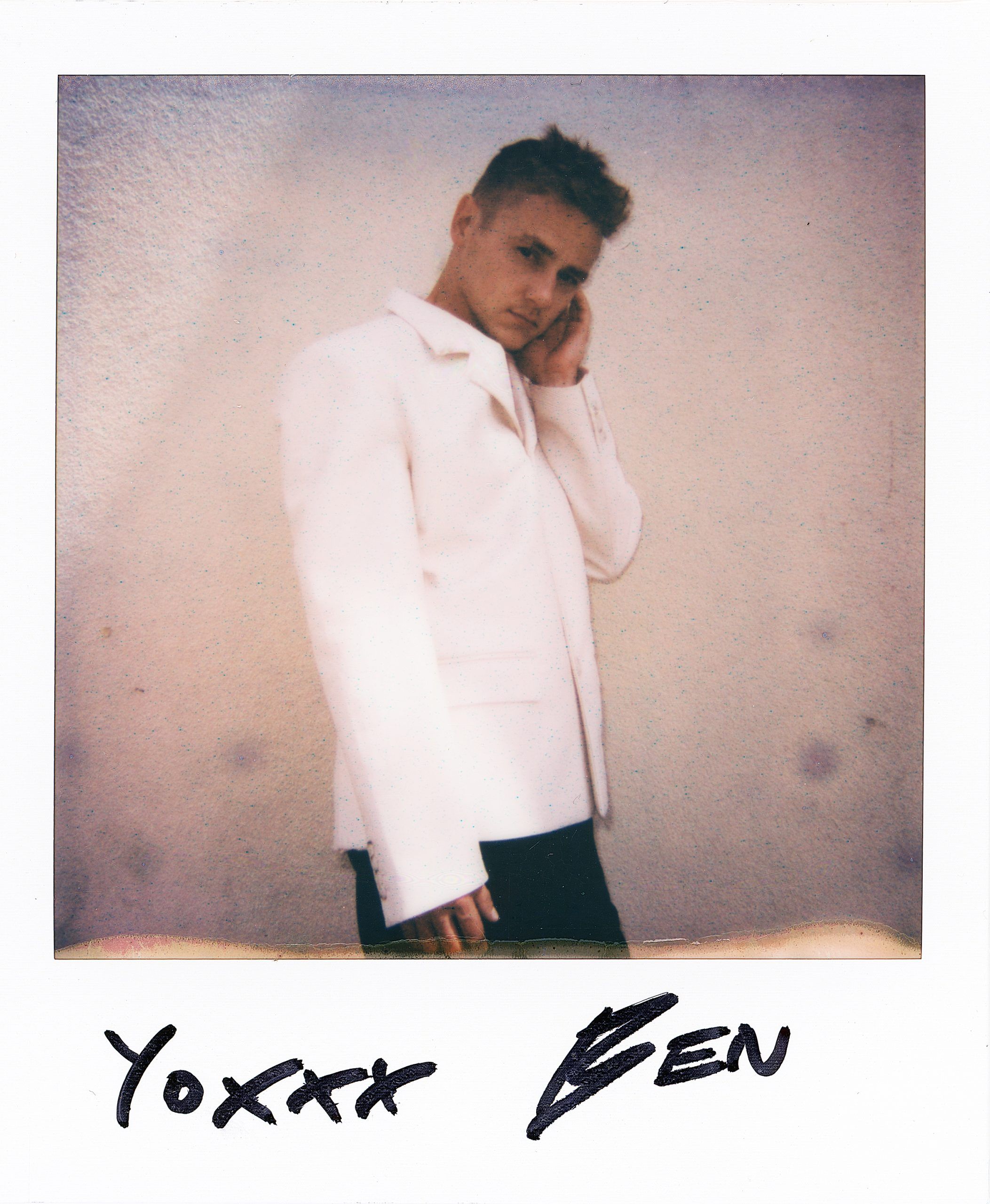
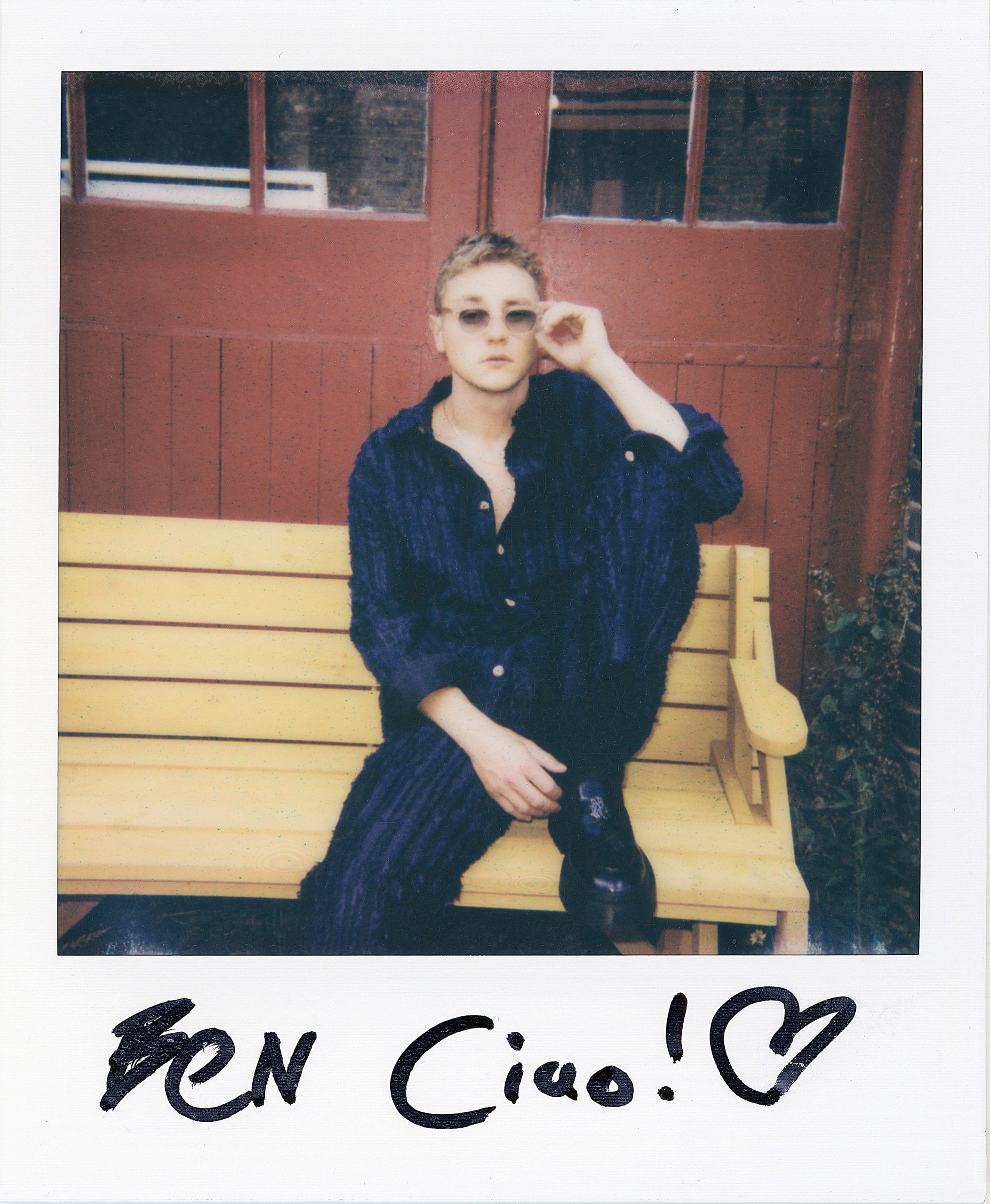
Unicorns is out now.
Interview Kelsey Barnes
Photography Jemima Marriott
Styling Gregory Russill
Grooming Chantelle Phillips


